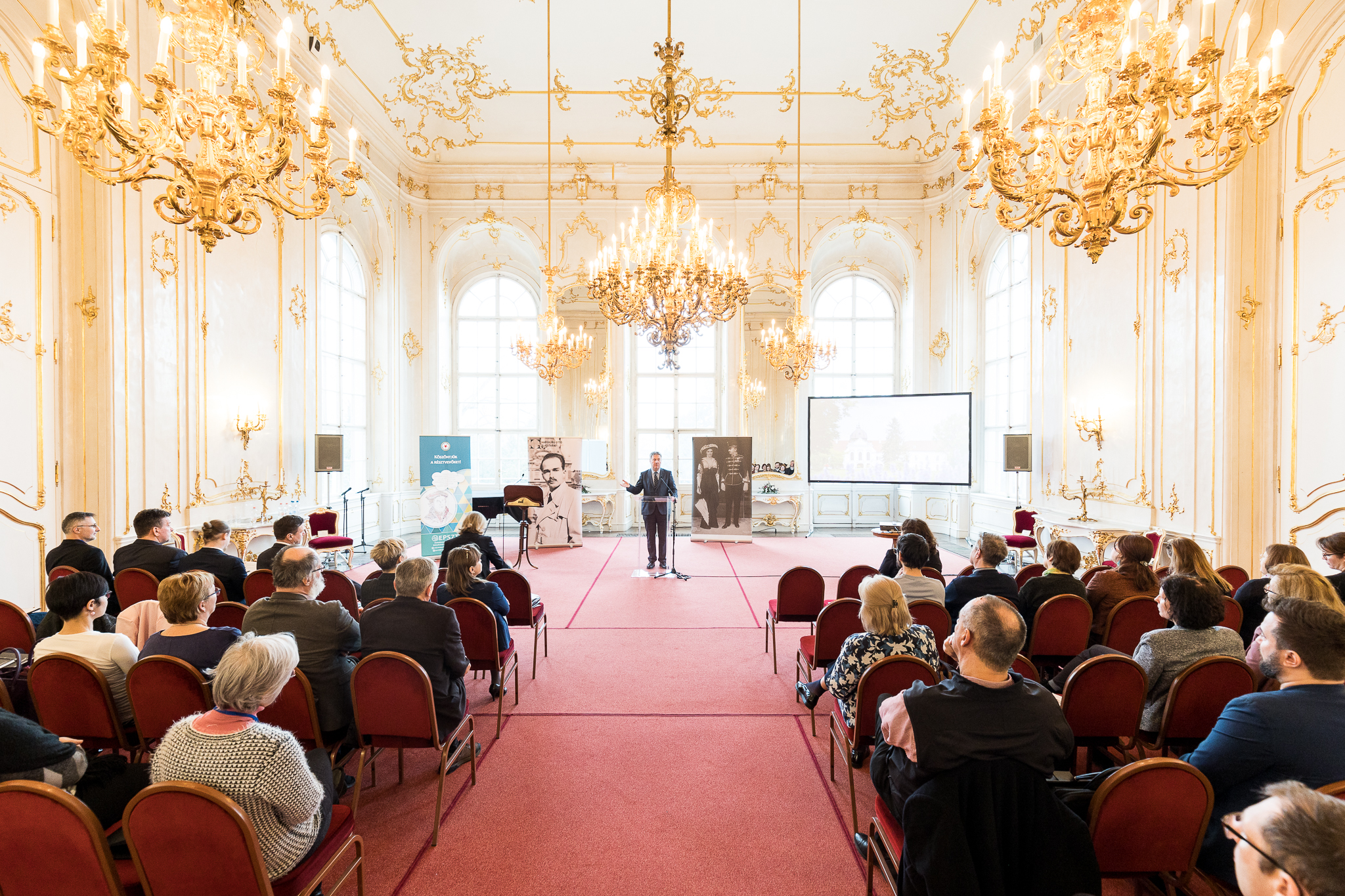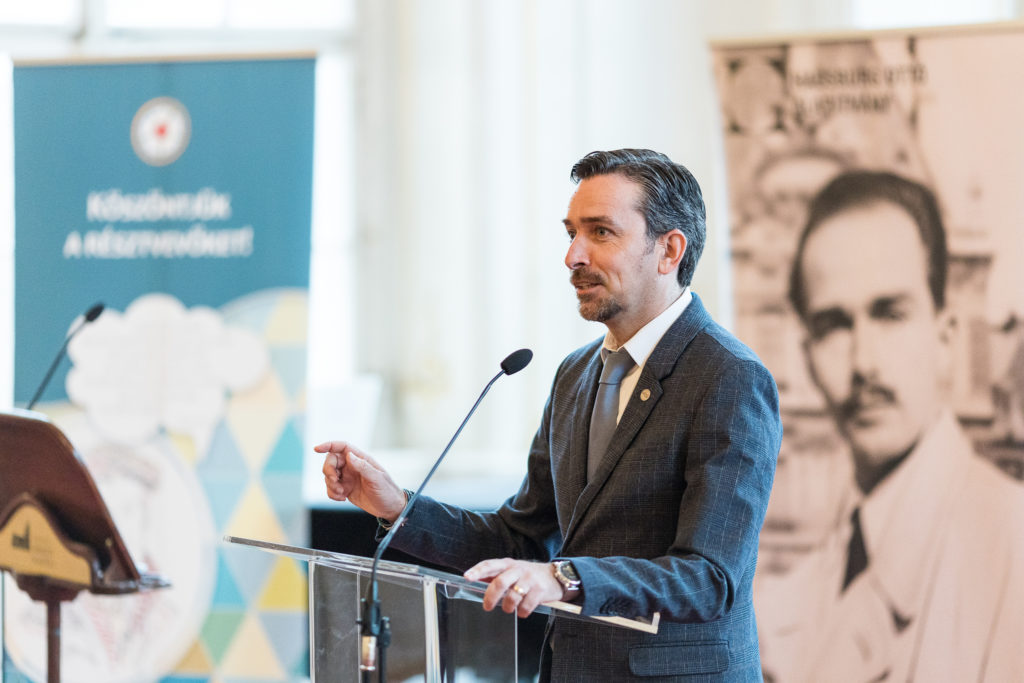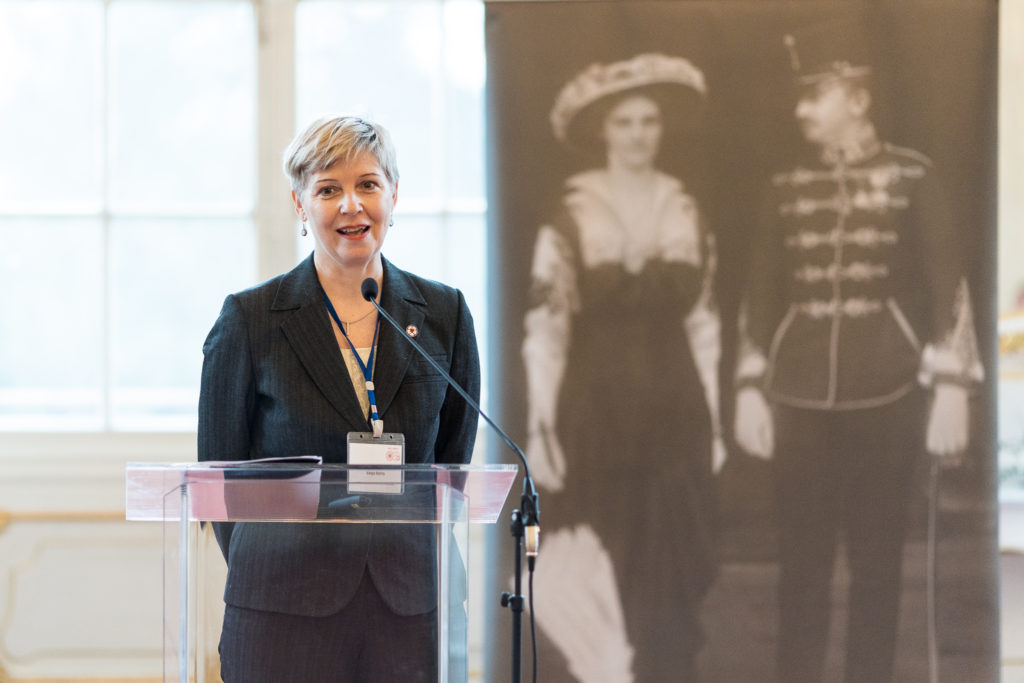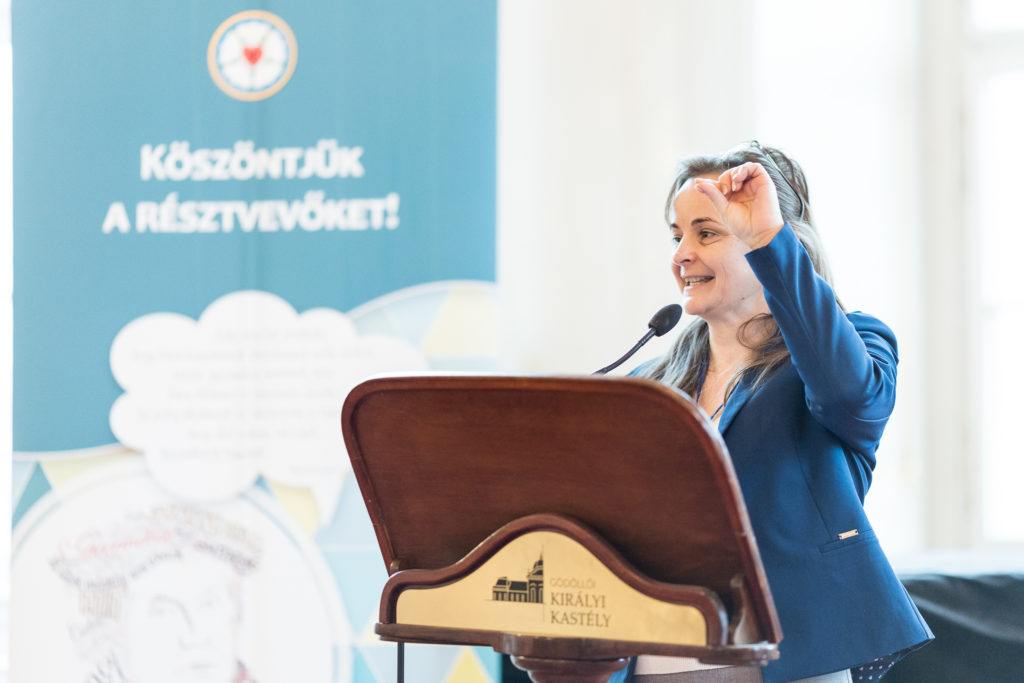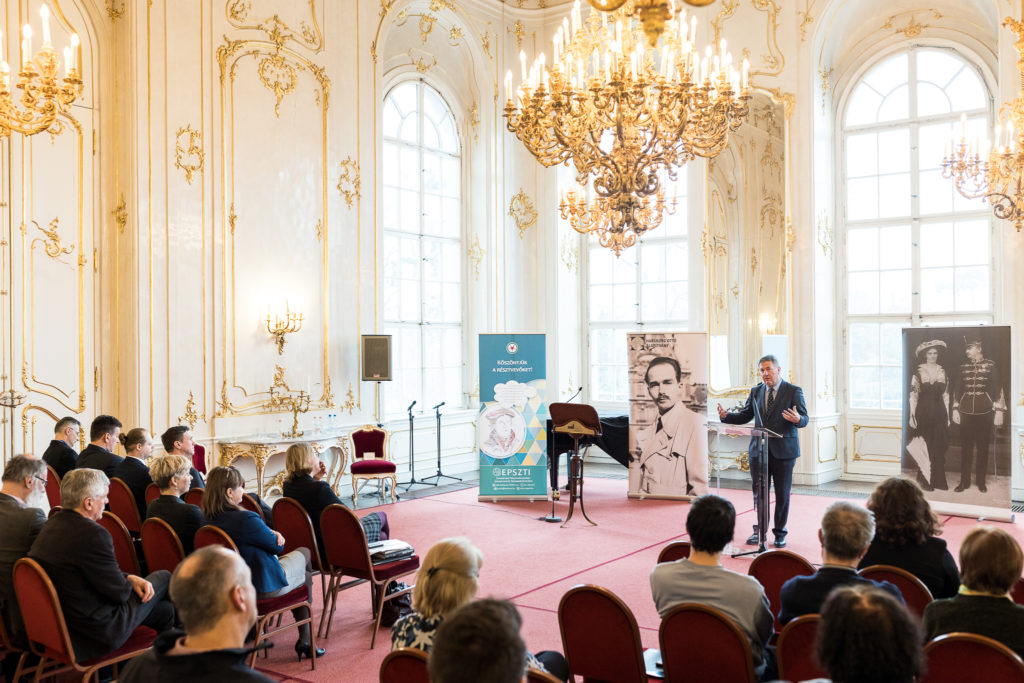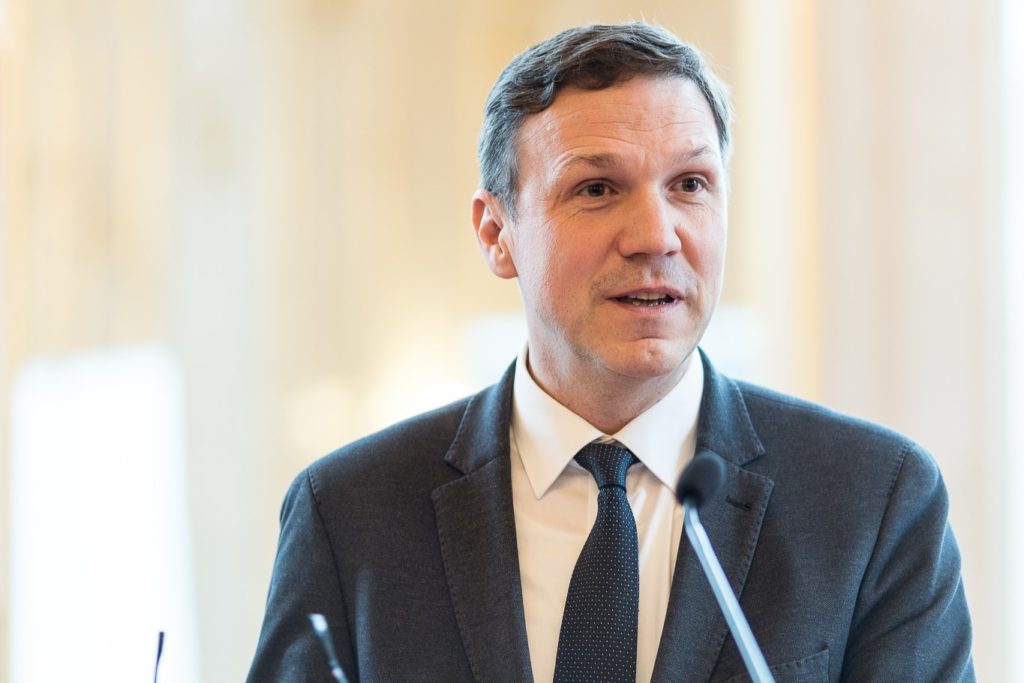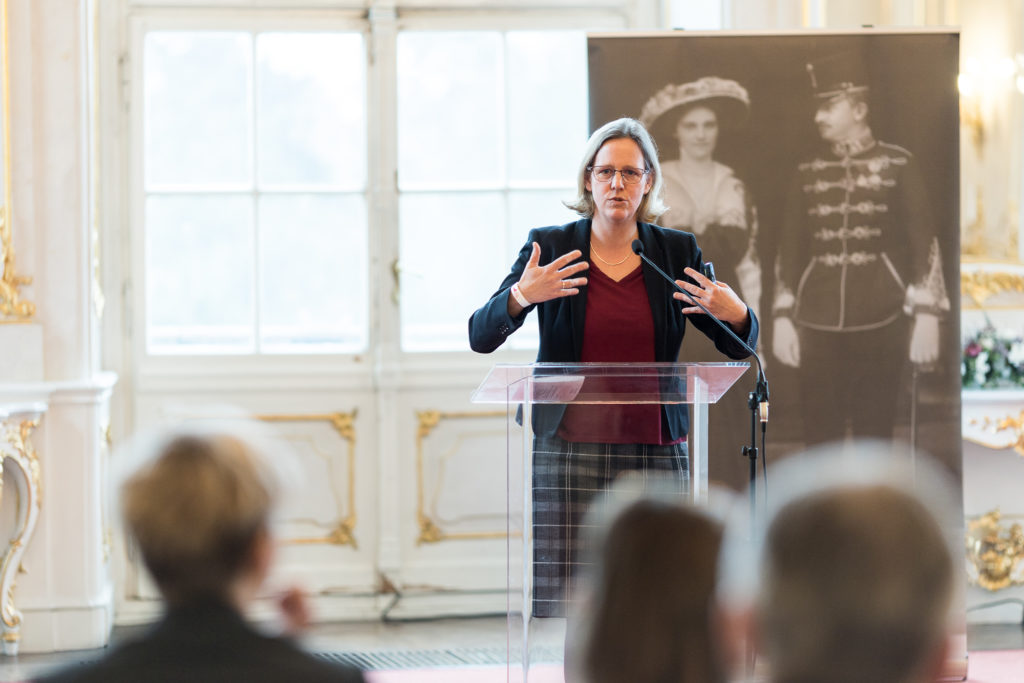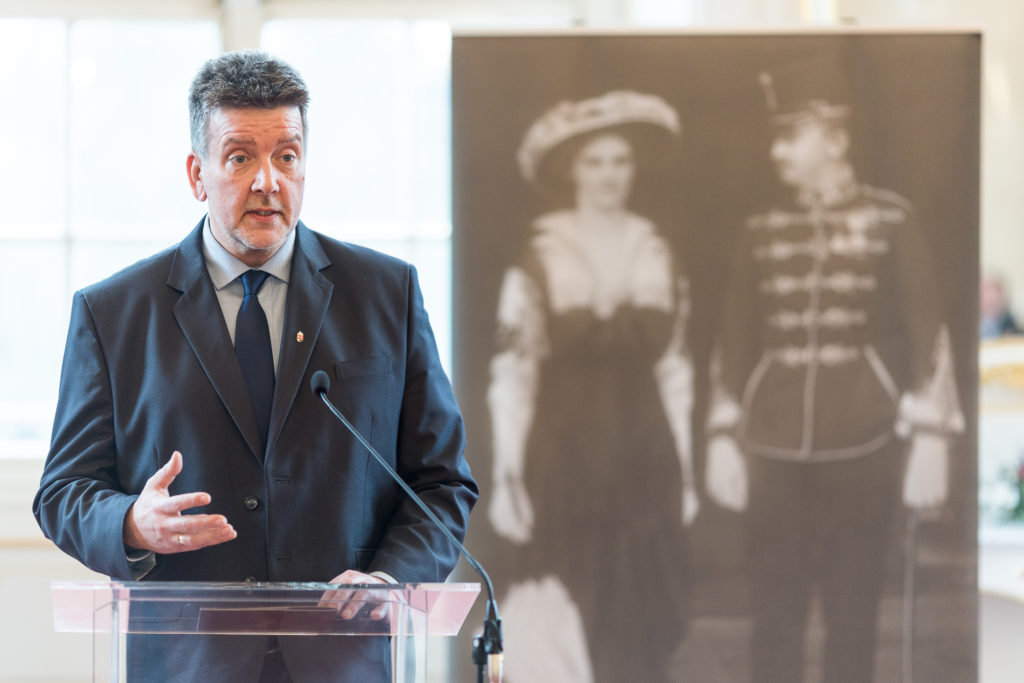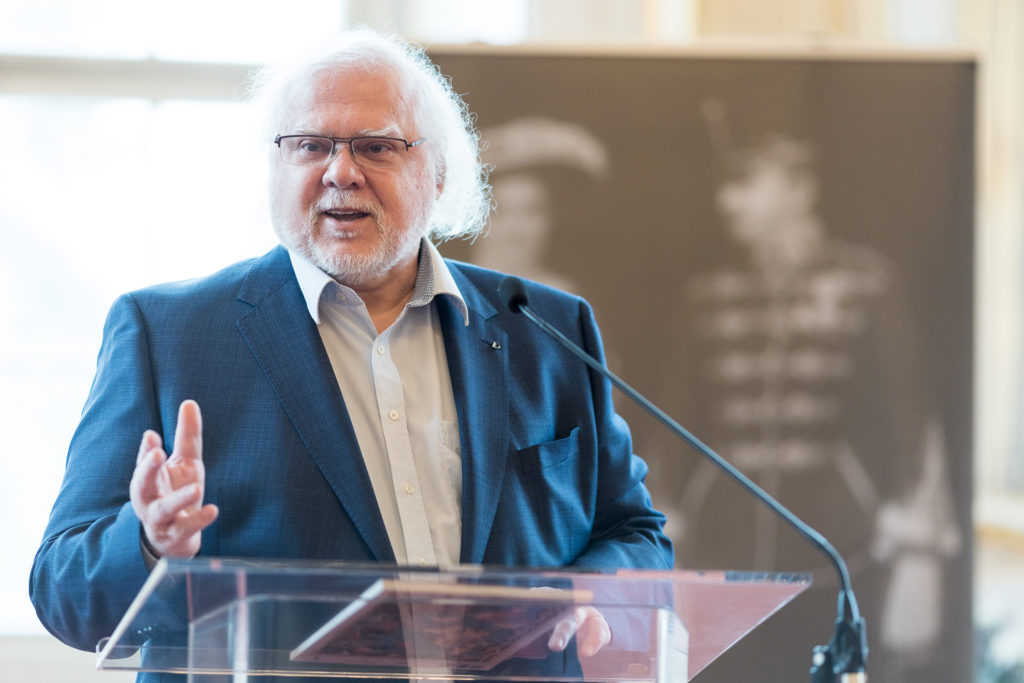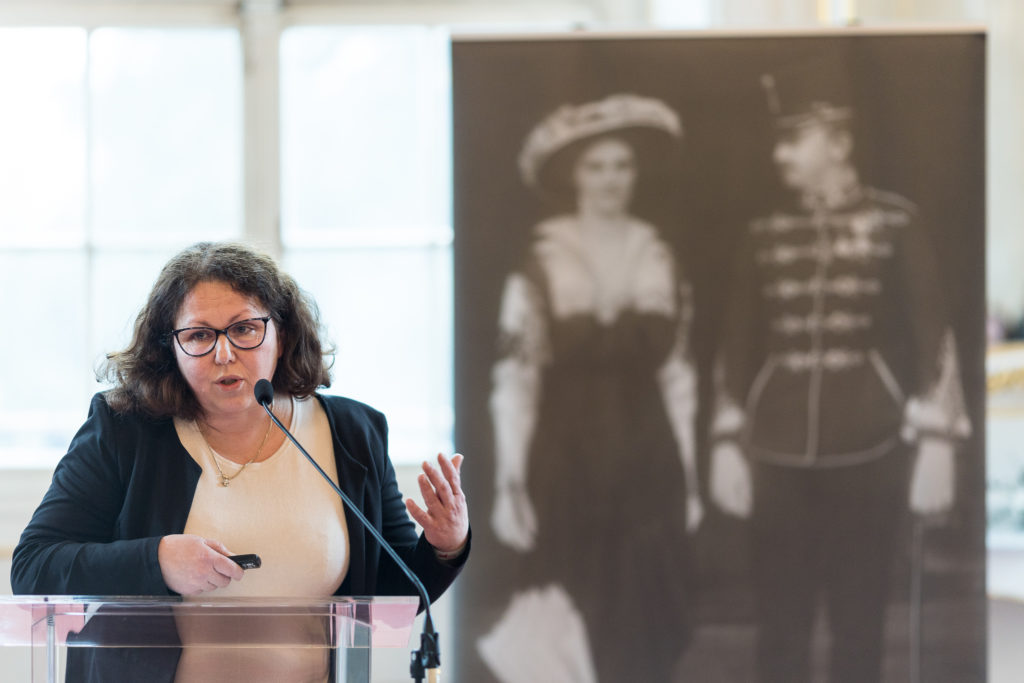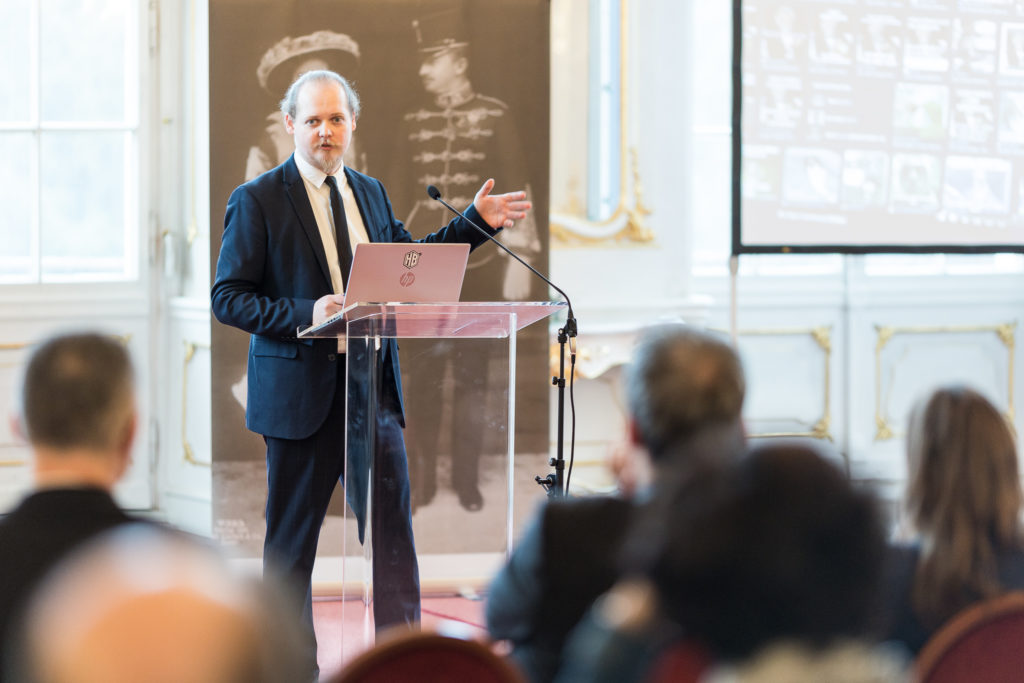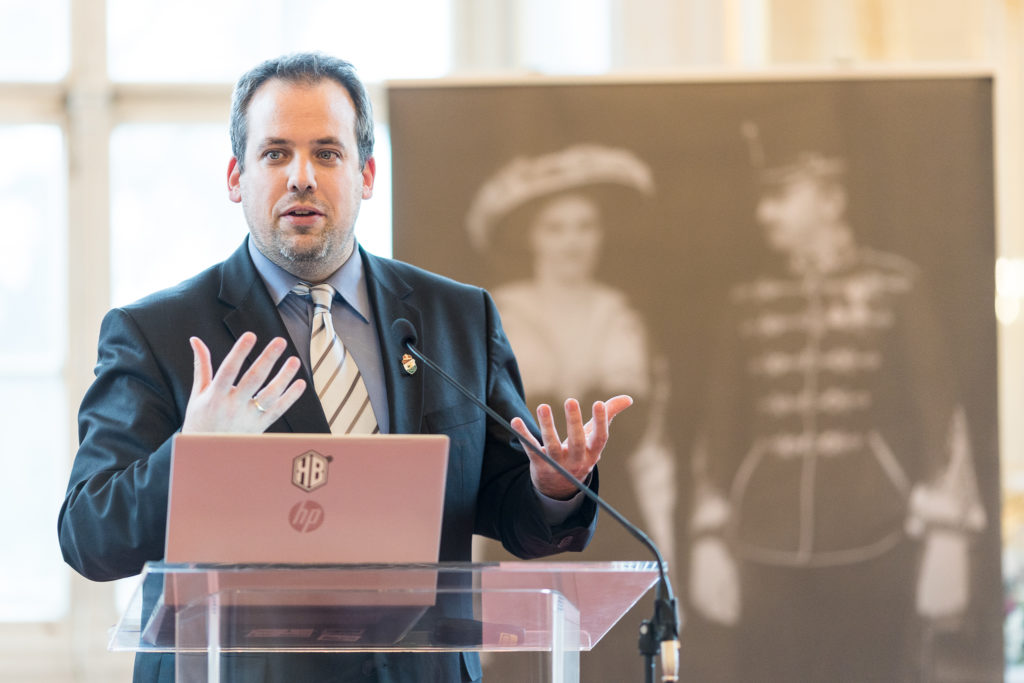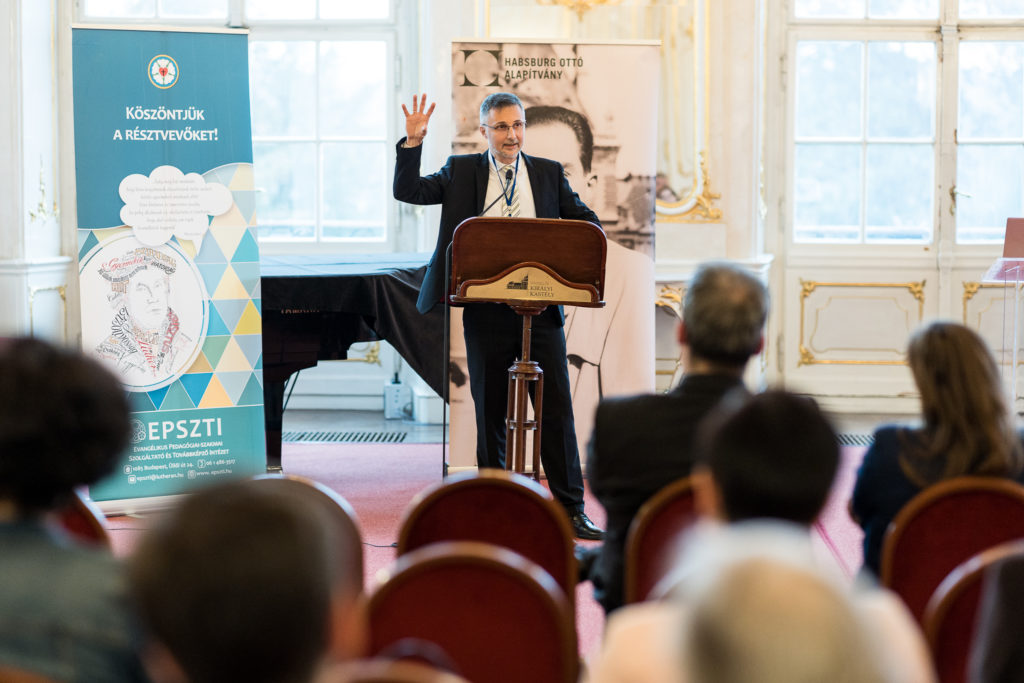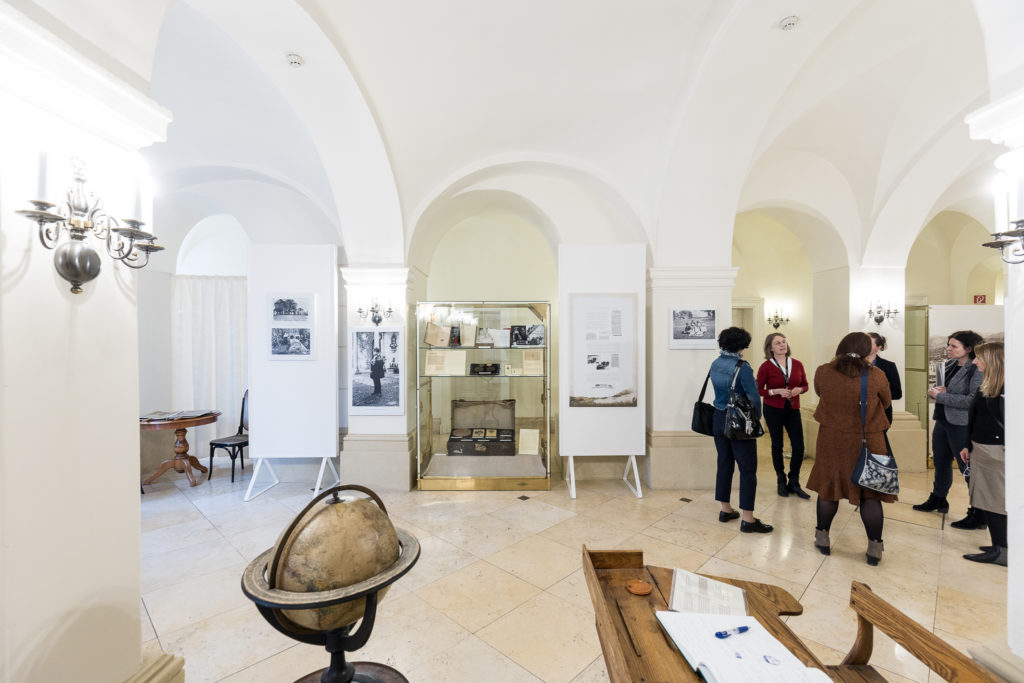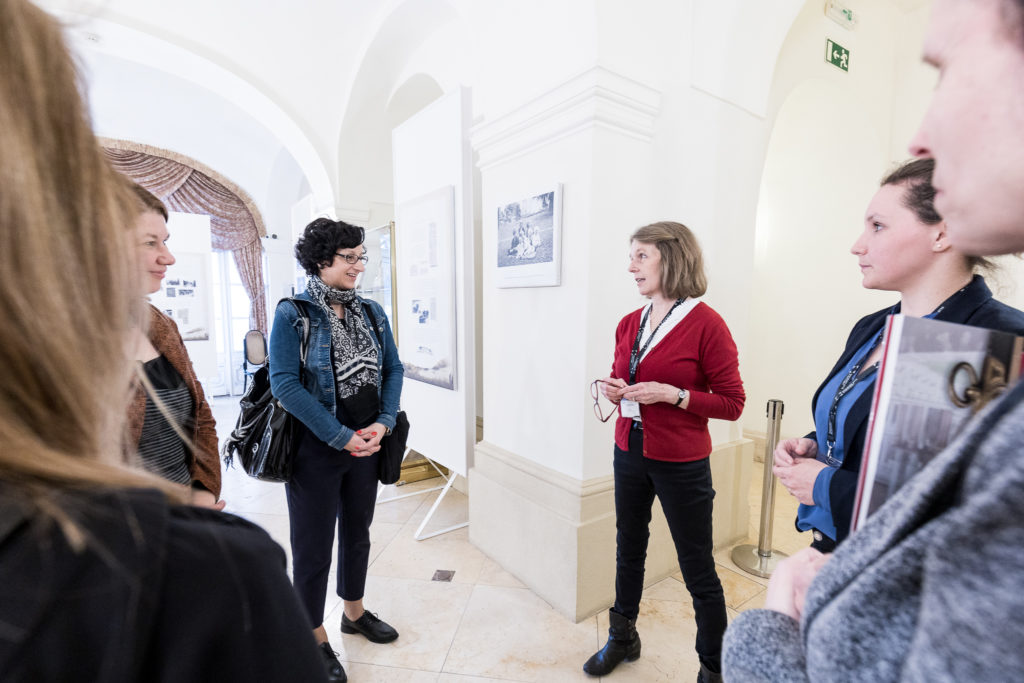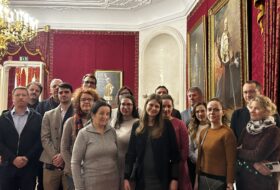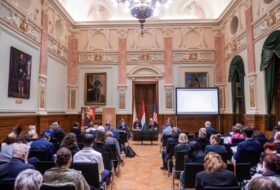As the host, Dr. Tamás Ujváry, Director of the Royal Palace of Gödöllő, welcomed the participants, while Márta Varga, Head of the Education and Training Department of MEE and Valéria Veizer, Director of the Aszód Evangelical Petőfi High School, addressed the audience on behalf of the organisers of the anniversary conference.
The introductory lecture was given by Gergely Prőhle, Director of the Otto von Habsburg Foundation and Lay President of the Evangelical Lutheran Church in Hungary. On the day before the first anniversary of the beginning of the Russian-Ukrainian war, two days before the Day of Remembrance of the Victims of Communism, he quoted from the Epistle of St. Paul the Apostle to the Romans, calling for love without hypocrisy: “Do not be overcome by evil, but overcome evil with good.” (Romans, 12:21) Gergely Prőhle underlined that our children will only know what to think about war, peace, the European Union, the past and the challenges of the present if they learn – if we teach them – that the national interest and European integration are not in conflict, and that the harmony of the two can be ensured by building on the principle of subsidiarity. Teachers in secondary schools are responsible for teaching this. With this in mind, he wished the conference participants a fruitful meeting.
Gergely Fejérdy, Deputy Scientific Director of our Foundation, spoke about Otto von Habsburg’s years as a student. His educational-pedagogical programme, which was continuously carried out in the often changing places of exile, was compiled and implemented with a strict agenda and with honourable purposefulness, despite the early loss of his father. The lecturer presented all this with a rich illustration of photographs and interesting details of family history. He stressed that Otto von Habsburg’s upbringing was not only based on intellectual values, but also on deep Catholic faith and the importance of sport. The former heir to the throne did not study to exercise power, but to serve others, and he lived up to this ambition.
Réka Földváryné Kiss, Director of the Committee of National Remembrance, gave information about their programmes for secondary school students. As she reminded us, the persecution of the Church under the Kádár regime and the abuses of power by the party state were not based on the educational principles of the Habsburg children. Teaching about the 20th century is an important task for contemporary education – this should include a significant place for history, which has been deliberately silenced in the past. The Committee of National Remembrance is helping teachers to show their students what it is like when history enters the lives of families through travelling exhibitions, educational publications, worksheets, special history lessons, thematic short films and quizzes. Now that the period is well understood at the level of basic research, the question is how to make it accessible to the widest possible audience. By learning about the lives of everyday heroes, a culture of remembrance can be created that shows how people are confronted with choices in the face of heightened historical moments.
Zita Szilágyi, history teacher of the Aszód Evangelical Petőfi High School, gave a presentation on the project she and her students had carried out together, which was about the Podmaniczky family history.
Other speakers at the conference included Gábor Móczár, Director of the National Heritage Institute, Árpád Rácz, Co-President of the Rubicon Institute and founder of the historical journal of the same name, Bálint Fekete, Chief Editor of the újkor.hu and Mihály Nánay, President of the Association of Hungarian History Teachers. The conference was closed by Gábor Péterfi, Head of the Textbook Publishing Unit of the Association of History Teachers.
The participants of the conference had the opportunity to view the exhibition entitled “Exiled in Madeira”, arranged by the Otto von Habsburg Foundation, which can be visited in the Royal Palace of Gödöllő until 1 April 2023. The exhibition, which commemorates the 100th anniversary of the death of Charles IV, was presented by curators Eszter Fábry and Beáta Vitos-Merza, colleagues of our Foundation.
Our participation in the event for history teachers created an opportunity to bring the work of our Foundation and the life’s work of our namesake closer to the young generations through the mediation of teachers.
Photos: Márton Magyari – Institute of Pedagogy of the Evangelical Lutheran Church
